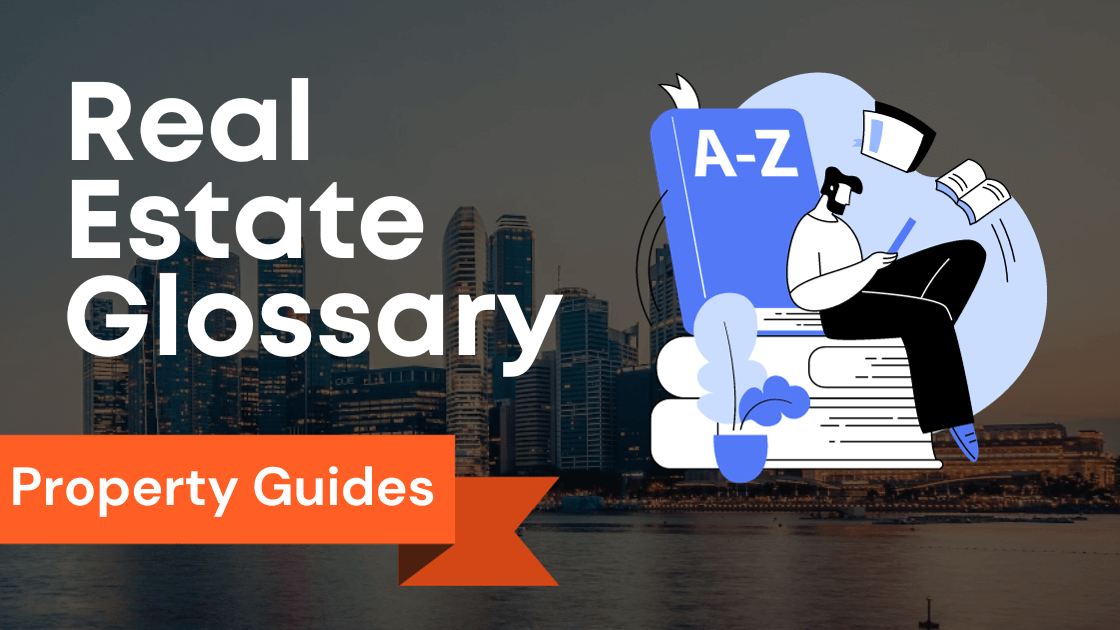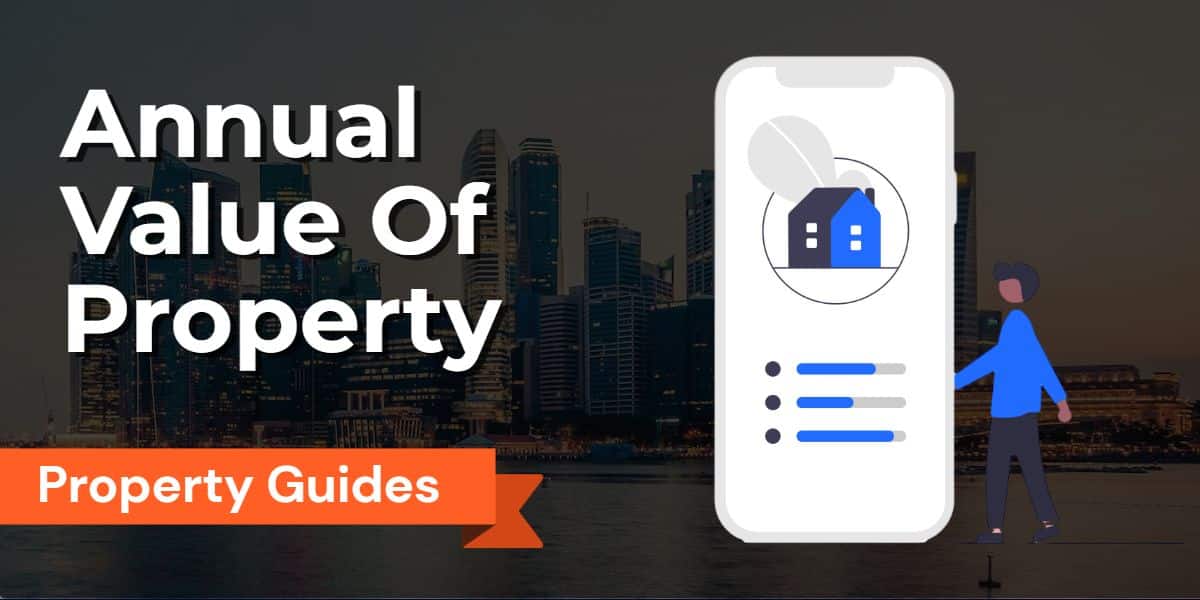
In this article, we’ll explore the importance of property management, the responsibilities of property managers, and strategies for optimizing rental income and cost savings.
Whether you’re a property owner or interested in a career in property management, this content will provide valuable insights to help you succeed in the field.
By understanding the role of property management and its significance, you can make informed decisions about your real estate investments and ensure the success of your properties.
Key Takeaways
| Key Takeaway | Property Management |
|---|---|
| Definition | Property management involves the administration, control, and maintenance of real estate properties, aiming to increase property value and maximize income. |
| Role of Property Management Companies | Property management companies manage properties on behalf of owners, offering services like leasing, tenant screening, rent collection, and maintenance. |
| Benefits of Property Management | Property management services provide higher quality tenants, better tenant retention, timely repairs and maintenance, improved rent collection, and lower legal risks. |
| Responsibilities of a Property Manager | Property managers handle marketing, tenant screening, rent collection, maintenance, legal compliance, lease enforcement, dispute resolution, and financial management. |
| Importance of Communication Skills | Effective communication is vital for property managers to maintain tenant satisfaction, resolve conflicts, and negotiate with stakeholders. |
| Tenant Management and Lease Agreements | Property managers manage tenant relations, enforce lease agreements, and ensure compliance with terms and conditions outlined in the lease. |
| Asset Management for Real Estate Portfolio | Property managers use asset management strategies like renovations and market monitoring to maximize property value and rental income. |
| How Property Managers Help Landlords | Property managers assist landlords in day-to-day operations, including tenant screening, rent collection, maintenance, tax filing, and legal compliance. |
| Benefits of Hiring a Leading Property Management Team | Hiring a leading property management team increases rental income, provides experience, reduces vacancy rates, increases property value, and offers expert legal advice. |
| Choosing the Right Property Management Service | When selecting a property management company, consider services offered, experience, track record, and referrals from other property owners or industry professionals. |
| Features of Good Real Estate Management Software | Good property management software includes features like automated rent collection, financial tracking, integration with accounting software, online tenant portals, reporting, and mobile apps. |
| Duties and Responsibilities of a Property Manager | Property managers handle tenant relations, property maintenance, lease enforcement, rent collection, financial management, and asset management strategies. |
| Qualifications and Skills for Property Managers | Successful property managers possess communication, leadership, organizational, and problem-solving skills, along with knowledge of property management laws and industry tools. |
| Success as a Real Estate Professional in Property Management | To succeed, real estate professionals should build networks, stay updated with industry trends, provide exceptional customer service, use effective marketing, and invest in education and development. |
| Effective Property Accounting and Financial Management | Effective property accounting and financial management involve maintaining financial records, optimizing asset allocation, and utilizing specialized software for automation and centralization. |
| Overview of Yardi Breeze and Yardi Voyager Property Management Software | Yardi Breeze and Yardi Voyager are property management software solutions that offer comprehensive features for residential and commercial property management. |
| Key Considerations When Selecting Property Management Service Providers | When selecting property management service providers, consider their experience, reputation, track record, and ability to deliver excellent performance and customer satisfaction. |
| Responsibilities and Duties of a Property Manager | Property managers oversee various tasks, including tenant management, financial management, lease enforcement, maintenance coordination, eviction assistance, and property sales support. |
| Maximizing Rental Income and Cost Savings | Strategies for maximizing rental income include using property management software, adapting marketing strategies, analyzing market trends, minimizing costs, and utilizing technology. |
Introduction to Property Management

Definition of Property Management
Property management is the administration, control, and maintenance of real estate properties, including residential, commercial, and industrial properties.
It involves overseeing all aspects of the building, including maintenance, tenant relations, rent collection, budgeting, and other administrative tasks.
Property management aims to increase the value of the property and maximize the company’s income by ensuring efficient operations in the building.
Role of Property Management Companies
The role of property management companies is to manage and maintain properties on behalf of property owners or investors.
The companies provide a range of services, including leasing, tenant screening, rent collection, maintenance, and accounting services.
Property management companies also offer marketing and advertising services to attract new tenants to the property.
The main objective of property management companies is to maximize profits for their clients while minimizing risks.
Benefits of Property Management
The benefits of property management services are wide-ranging, and they include:
- Higher quality tenants: Property management companies have screening procedures in place that ensure that they get higher quality tenants that pay rent on time and take care of the property.
- Better tenant retention: The companies also have retention strategies that ensure tenants stay longer, reducing vacancy rates.
- Timely repairs and maintenance: Property management companies have a team of professionals who ensure that they respond to repairs and maintenance issues promptly.
- Improved rent collection: Property management companies ensure rent is collected on time, improving cash flow for the property owner.
- Lower risk of legal problems: Property management companies have an understanding of the legal requirements of managing a property, reducing the risk of legal issues.
What Does a Property Manager Do?
Responsibilities of a Property Manager
A property manager is responsible for carrying out the day-to-day tasks that ensure the smooth running of the property.
The responsibilities of a property manager include:
- Marketing and advertising the property
- Screening and selecting tenants
- Collecting rent and managing leases
- Maintaining the property and coordinating repairs
- Filing taxes and managing finances
- Enforcing lease agreements
- Resolving tenant disputes and complaints
- Complying with the legal requirements of managing a property
Skills and Qualifications for Property Managers
To be a successful property manager, one needs to have excellent communication, leadership, and interpersonal skills.
A property manager should be able to relate to tenants, property owners, and different stakeholders effectively.
Other essential skills and qualifications required for a property manager include:
- A degree in property management or real estate
- Experience in managing residential and commercial properties
- Knowledge of relevant laws and regulations governing the real estate industry
- Strong organizational and administrative skills
- Ability to use property management tools and software
- Problem-solving and decision-making skills
Importance of Communication Skills for Property
Managers
Communication is an essential aspect of property management.
Property managers must be able to communicate with tenants, landlords, and other stakeholders effectively.
Good communication leads to better tenant satisfaction, leading to better retention rates, and increased rental income.
Property managers should also have excellent negotiation and conflict resolution skills to resolve disputes that may arise among tenants or other stakeholders.
Understanding Rental Properties

Tenant Management and Lease Agreements
Tenant management is essential to property management, especially for rental properties.
Property managers are responsible for managing tenant relations, leasing, and rent collection.
They also ensure that tenants comply with the terms of the lease agreement.
A lease agreement outlines the terms and conditions of the tenancy, including the rent, security deposit, and the responsibilities of the tenant and the landlord.
Property managers ensure that the lease agreement is enforced, and they resolve any issues that may arise during the tenancy.
Asset Management for Your Real Estate Portfolio
Asset management involves managing the real estate portfolio of an investor or property owner.
Property managers use asset management strategies to maximize the value of the property and increase the rental income.
Asset management strategies include renovation, remodeling, and upgrading of the property to attract high-quality tenants.
Property managers also monitor the market trends and adjust the rental rates accordingly to reflect the market conditions.
How Property Managers Help Landlords Manage Their
Rental Properties
Property managers have a significant role to play in managing rental properties.
They help landlords manage the property’s day-to-day operations, including tenant screening, rent collection, and maintenance.
Property managers also help landlords in complying with the legal requirements of owning and operating rental properties, including tax filing and legal compliance.
Choosing the Right Property Management Service
The Benefits of Hiring a Leading Property Management
Team
Hiring a leading property management team has several benefits, including:
- Increased rental income: Leading property management teams use their expertise to maximize the property’s rental income.
- Wealth of experience: Leading property management teams have the experience and knowledge required to manage properties effectively.
- Lower vacancy rates: Leading property management teams have effective marketing and advertising strategies that ensure lower vacancy rates.
- Increased property value: Leading property management teams use asset management strategies to increase the value of the property.
- Expert legal advice: Leading property management teams have the expertise to provide legal advice to landlords on leasing and property management matters.
Comparing Property Management Companies in Singapore
Singapore has a highly competitive property management industry, with different service providers offering diverse solutions.
To choose the right property management company, you need to compare the different services and their costs.
You also need to consider the experience of the company and its track record in managing properties similar to yours.
You can also seek referrals from other property owners or professionals in the real estate industry to identify the best property management services in Singapore.
What to Look for in a Good Real Estate Management
Software
Real estate management software is essential in managing rental properties and real estate portfolios.
A good real estate management software should have the following features:
- Automatic rent collection and invoicing
- Easy financial and lease tracking
- Integration with accounting software
- Online tenant portal for communication and rent payment
- Reporting and analytics features for better decision making
- Mobile app for easy access to property management information
Job Description of a Property Manager

Duties and Responsibilities of a Property Manager
A property manager carries out several duties and responsibilities, including:
- Managing tenant relations and lease agreements
- Maintaining and repairing the property
- Enforcing lease agreements and resolving conflicts
- Collecting rent and managing finances
- Coordinating legal compliance and tax filing
- Asset management strategies to maximize rental income
Qualifications and Skills Required for Property
Management Jobs
To succeed as a property manager, one needs to have a degree or diploma in real estate or property management.
Experience in managing properties is also necessary, along with excellent communication and organizational skills.
Other skills required for property management jobs include problem-solving, attention to detail, and proficiency in the use of property management software and tools.
How to Succeed as a Real Estate Professional in
Property Management
To succeed as a real estate professional in property management, you need to:
- Build a strong network of contacts in the industry
- Keep up with the latest industry trends and innovations.
- Provide exceptional customer service to tenants and property owners.
- Be proactive in your communication with tenants and landlords
- Use effective marketing and advertising strategies to attract tenants to your properties.
- Invest in continued education and professional development to stay ahead of the competition
Effective Property Accounting and Financial Management
Understanding the Basics of Property Accounting and
Financial Management
Effective property accounting and financial management is integral to operating a successful property management business.
Property accounting essentially deals with maintaining financial records and tracking revenues and expenses, while financial management handles the allocation of assets to ensure that resources are wisely invested to enhance business performance.
Professional property accounting involves the use of specialized property accounting software that helps to automate financial management processes.
The accounting system used should be able to centralize and manage different financial and property types and generate financial reports regularly.
Some software also includes the management of leases, lease administration, and maintenance services.
Implementing Best Practices in Property Accounting and
Financial Management
Industry experts recommend several best practices in property accounting and financial management to ensure optimal results.
One of the recommended practices is to have asset management software that gives an overview of the manager’s portfolio of properties.
This software helps managers to track rent collections, lease expirations, and maintenance requests.
It helps managers proactively identify the sources of income and expenses that can affect business operations positively or negatively.
Another recommended approach is to refreshingly simplify property management procedures through the use of automated management systems.
These management systems provide a centralized platform for all business processes, including rent collections, maintenance services requests, and and lease management.
Benefits of Optimal Property Accounting and Financial
Management
Optimizing property accounting and financial management practices results in several benefits, including minimizing operating costs, realizing maximum rental income, and enhancing business performance.
Real-time tracking of all business processes enables asset managers to make data-driven decisions that positively impact the bottom line.
Overview of Yardi Breeze and Yardi Voyager Property Management Software

Introduction to Yardi Breeze and Yardi Voyager
Yardi Breeze and Yardi Voyager are award-winning property management software that caters to residential and commercial property management.
Developed by Yardi Systems, the software is an all-in-one platform that provides a comprehensive solution for managing business processes, rental units, and tenant relations, among others.
The software is ideal for managers who handle a large portfolio of properties.
It simplifies business processes, enhances business performance, and provides a competitive edge.
Yardi Breeze is perfect for small businesses, while Yardi Voyager is suitable for Asset Managers or commercial property portfolios with many units or square feet.
Features and Functionality of Yardi Breeze and Yardi
Voyager
The two software have different pricing models; Yardi Breeze operates on a subscription basis, while Yardi Voyager’s pricing model depends on the size of the portfolio of properties.
Both Yardi Breeze and Yardi Voyager have essential features such as lease management, property management system, maintenance services, accounting, and financial management.
In addition, they have expansive functionalities such as CRM, reporting tools, customized dashboards, business intelligence, mobile apps, and workflows.
The software provides an all-around solution that maximizes profits, ensures compliance, and meets tenants’ needs.
Comparison of Yardi Breeze and Yardi Voyager Property
Management Software
While Yardi Breeze and Yardi Voyager offer similar services, there are differences between the two software.
Yardi Breeze is designed to be a simpler form of property management software for smaller portfolios, while Yardi Voyager has more features suited to commercial property managers.
Another difference is in the pricing model, whereby Yardi Breeze operates on a subscription model, while Yardi Voyager depends on the size and complexity of the portfolio of properties managed.
The Importance of Connecting with Property Management Service Providers
Key Considerations When Selecting Property Management
Service Providers
Partnering with property management service providers is crucial in delivering exceptional customer service to tenants, ensuring business continuity, and maximizing asset value.
Selecting a reputable property management firm involves evaluating the company’s experience in managing specific types of property, its reputation in the industry, and having track record of delivering excellent performance and customer satisfaction.
Benefits of Partnering with Property Management Service
Providers
Partnering with property management service providers can be beneficial for business owners who lack adequate resources or knowledge to perform some business functions.
Property management firms provide access to industry experts who can offer valuable advice to the property owner.
Also, service providers take care of the time-consuming business procedures involved with managing different types of property, including conducting market research, tenant management, maintenance services, and expense tracking.
Maximizing the Value of Property Management Service
Providers
Maximizing the value of property management service providers requires business owners to work closely with the managers, understand the company’s different management approaches, and ensure that performance metrics are tracked regularly.
Business owners must also be clear about the expectations they have regarding business performance and procedures, including flexible spaces, business opportunities, and property maintenance services.
This ensures that all parties are on the same page, resulting in enhanced business collaboration and performance.
Key Responsibilities and Duties of a Property Manager

Understanding the Role of a Property Manager
A property manager is responsible for implementing and overseeing different business processes and procedures, including rent collections, lease management, maintenance services, budgeting, and accounting, among others.
A property manager’s primary goal is to help businesses become more profitable by ensuring that their properties are managed efficiently and effectively.
Important Qualities of an Effective Property Manager
To be an effective property manager, you need to have various qualities, including exceptional communication and interpersonal skills, analytical skills, organizational skills, and significant attention to detail.
An effective property manager should also have an understanding of local and national property laws, business operations, and business performance metrics.
Top Responsibilities and Duties of a Property Manager
There are different responsibilities and duties of a property manager that ensure that business objectives are achieved, including looking for new tenants or lease renewals, ensuring tenant satisfaction, managing financial records, preparing financial analysis and budgets, overseeing maintenance requests, preparing monthly rental statements, overseeing evictions, and assisting with property sales, among others.
Maximizing Rental Income and Cost Savings in Property Management
Strategies for Generating Maximum Rental Income
The effective use of property management software that automates business processes such as rent collections, lease terms, and tenant relationship management can result in increased operational efficiency and the realization of maximum rental income.
Marketing strategies such as adapting multifamily and mixed-use property types, and personal property rentals can provide business opportunities and enhance business performance.
Data-driven analysis of market trends and pricing structures can also enable business owners to maximize property value and increase rental prices.
Minimizing Operating Costs and Enhancing Cost Savings
Minimizing operating costs and enhancing cost savings can be done by maintaining effective communication with the tenants, optimizing business processes, and utilizing the latest technology to reduce operating costs.
Some of the most cost-saving strategies include using energy-efficient lighting options, automated payment and maintenance services, and smart technology such as control and security systems.
Using Technology to Optimize Rental Income and Cost
Savings
The use of property management software such as Yardi Breeze and Yardi Voyager are exemplary in optimizing rental income and cost savings.
Some of the features, such as accounting and maintenance services, enable managers to handle financial records better.
Tenant relationship management, real estate services, and customized dashboards help improve tenant satisfaction and increase revenue.
What is Property Management and Why is it Important?

Definition of Property Management
Property management refers to the administration, maintenance, and operation of real estate assets by a professional team on behalf of the owner or occupier.
This involves various activities such as marketing, leasing, rent collection, tenant screening, repairs, inspections, accounting, and legal compliance.
Property managers act as intermediaries between landlords and tenants to ensure smooth communication and conflict resolution.
Property management services can be offered by a real estate company, brokerage firm, or property management software that helps streamline workflows and improve performance.
The Importance of Property Management in Real Estate
Effective property management is crucial for real estate investors and landlords to maximize their return on investment, minimize risks, and preserve the value of their assets.
Without proper management, properties can quickly deteriorate and become liabilities instead of assets.
Property managers can ensure that properties are well-maintained, occupied by reliable tenants, and compliant with local and federal regulations.
They can also provide valuable insights into the real estate market and help owners make informed decisions about their investments.
Job Description for a Property Manager
Property managers have diverse responsibilities that require excellent communication, organizational, and problem-solving skills.
Some of the most common duties of a property manager include:
- Marketing and promoting vacant properties
- Screening and selecting tenants
- Drafting and signing leases
- Collecting rent and managing accounts payable
- Coordinating maintenance and repair work
- Conducting routine inspections and safety programs
- Ensuring legal compliance and meeting lease obligations
- Communicating with landlords and tenants
Best Practices for Property Maintenance and Routine Inspections
Why Routine Inspections are Important
Routine inspections are a critical aspect of property management that can help prevent costly repairs, liability issues, and tenant complaints.
Property managers should conduct regular inspections of their properties to ensure they comply with safety and health regulations, identify any potential hazards, and assess the quality of maintenance.
Routine inspections can also help property managers address issues early before they become major problems and maintain positive tenant relationships.
Creating a Maintenance Schedule for Your Properties
Creating a maintenance schedule is an essential best practice for property managers to ensure that all necessary repairs and upgrades are completed regularly and on time.
Property managers should develop a comprehensive maintenance program that includes routine cleaning, landscaping, pest control, HVAC, and plumbing tasks.
They should also set aside a budget for emergency repairs and unexpected expenses.
Property management software includes work orders and task lists that can help automate maintenance tasks and improve efficiency.
The Benefits of Preventative Maintenance
Preventative maintenance is a proactive strategy that involves identifying and addressing potential issues before they occur.
This approach can help property managers save time, money, and resources in the long run and enhance the value of their properties.
Preventative maintenance tasks can include regular inspections of roofing, electrical, and plumbing systems and seasonal maintenance such as weatherization and HVAC maintenance.
By investing in preventative maintenance, property managers can increase the lifespan of their assets and improve tenant satisfaction.
Building a Successful Property Management Team

Recruiting and Hiring the Right Property Managers
A successful property management team requires the right people with suitable skills, experience, and attitude.
Property managers should attract and hire individuals who are passionate about real estate, customer service, and teamwork.
They should look for candidates with relevant degrees or certifications such as Real Estate Property Management courses, accounting expertise, and communication skills.
In addition, they can leverage social media platforms, job boards, and recruitment events to reach potential candidates.
Training and Development for Your Property Management
Team
Training and development are essential for property managers to stay up-to-date with industry trends, regulations, and best practices.
Property managers should provide ongoing training and skills development programs for their employees to improve their performance, increase their job satisfaction, and reduce turnover rates.
Training programs can include courses on customer service, leasing, maintenance, safety programs, and software applications.
Property managers can also offer mentoring and coaching programs to help employees grow and advance in their careers.
How to Motivate and Retain Your Property Management
Staff
Motivating and retaining high-performing employees is crucial for the success of property management teams.
Property managers should create a positive work environment that fosters collaboration, recognition, and feedback.
They should also offer competitive compensation and benefits packages, flexible schedules, and growth opportunities.
Property managers can conduct employee surveys, performance assessments, and career development plans to understand their employees’ needs and aspirations and invest in their development accordingly.
Strategies for Marketing and Attracting Tenants to Rental Properties
Understanding Your Target Market
Marketing rental properties requires a deep understanding of the target market and their preferences, needs, and behaviors.
Property managers should conduct market research and analysis to identify their target market’s demographics, income, lifestyle, and psychographics.
They can also leverage data analytics and customer relationship management software to segment and personalize their marketing strategies.
Property managers should determine their properties’ unique selling and value proposition and create compelling messages and visuals that resonate with their target market.
Effective Marketing Techniques for Rental Properties
Marketing rental properties require a combination of online and offline techniques that reach potential tenants through various channels.
Property managers should create a website or online platform that showcases their properties’ features, amenities, and rental rates.
They can also use social media platforms such as Facebook, Instagram, and LinkedIn to promote their properties, engage with their followers, and create a sense of community.
Property managers can also leverage offline marketing techniques such as yard signs, flyers, brochures, and open houses to attract prospects.
They should also work with leasing agents and brokers who can help market their properties to a wider audience.
How to Provide Excellent Customer Service to Prospective
Tenants
Providing excellent customer service is critical for property managers to attract and retain tenants in a competitive market.
Property managers should respond promptly to inquiries and complaints, provide clear and accurate information, and offer personalized solutions based on tenants’ needs and preferences.
They should also offer a seamless and convenient leasing process, including online applications, digital signatures, and electronic payments.
Property managers can also provide value-added services such as community events, incentives, and referrals to enhance the tenant experience and build loyalty.
Managing Residential and Commercial Property Portfolios

Different Asset Types and the Real Estate Market
The real estate market comprises various asset classes such as residential, commercial, retail, industrial, and mixed-use properties.
Each of these asset types has different characteristics, risks, and returns that require a unique management approach.
Property managers should have a deep understanding of the local real estate market and economic trends to identify opportunities and challenges that affect their asset performance.
Property managers should also conduct market research and property analysis to determine the optimal rental rates, vacancy rates, and capitalization rates for their assets.
Managing a Wide Array of Real Estate Assets
Managing a wide range of real estate assets requires a systematic approach that prioritizes resources, risks, and performance indicators.
Property managers should develop a portfolio management strategy that includes a clear mission statement, goals, and performance metrics.
They should also conduct regular portfolio reviews and assessments to identify underperforming assets, adjust their investment strategies, and optimize their portfolios.
Property management software includes accounting and reporting features that can help property managers track their assets’ financial performance, occupancy rates, and maintenance expenses.
The Importance of Financial, Investment, and Operational
Performance
Financial, investment, and operational performance are crucial for property managers to maximize their asset value and achieve their business goals.
Property managers should establish financial and investment benchmarks, including net operating income, return on investment, and cash flow, to measure their portfolios’ performance.
They should also monitor their operational performance, including leasing activity, tenant retention, and maintenance expenses, to identify areas for improvement.
Property management software includes performance dashboards, reports, and analytics that can help property managers make informed decisions and optimize their asset performance.
Ensuring Legal Compliance and Meeting Lease Obligations
Legal Obligations of a Property Manager
Property managers must ensure that their clients or their own properties comply with local, state, and federal laws.
These laws govern everything from the physical condition of properties to their occupancy and use.
Property managers also need to be aware of fair-housing regulations to avoid discrimination claims.
Lease Agreements and Significance
Lease agreements are critical documents that outline the tenancy details, such as the rental amount, lease term, payment dates, landlord-tenant obligations, and any special provisions.
Property managers must ensure that the lease agreements are signed correctly and that tenants understand their obligations.
A comprehensive lease agreement can protect the landlord’s interests in case of tenant default, property damage, or other lease violations.
The Role of the National Association of Residential
Property Managers
The National Association of Residential Property Managers (NARPM) is an organization dedicated to promoting professional standards in residential property management.
NARPM offers training, certification, and networking opportunities to property managers and advocates for the interests of the profession at the local, state, and national levels.
Conclusion
In conclusion, property management plays a vital role in overseeing and maximizing the value of real estate properties.
Property management companies provide valuable services such as tenant screening, rent collection, maintenance, and legal compliance, resulting in higher quality tenants, better retention rates, and improved cash flow.
Property managers are responsible for various tasks, including marketing, leasing, maintenance, and financial management.
Property owners can optimize rental income, minimize operating costs, and enhance business performance by partnering with leading property management teams and utilizing efficient property management software like Yardi Breeze and Yardi Voyager.
Connecting with reputable property management service providers and prioritizing effective property accounting and financial management practices is crucial.
Through strategic property management, landlords can ensure their properties are well-maintained, attract reliable tenants, and achieve long-term success in the real estate industry.
To explore more valuable insights on property management, check out our other blog articles.
Frequently Asked Questions
What is property management?
Property management refers to the professional management of properties, which includes residential, commercial, and industrial properties.
Property managers are responsible for managing all aspects of a property, including maintenance, rent collection, responding to tenant needs, and marketing the property.
Who is a landlord?
A landlord is an individual or company who owns a property that is being rented or leased to a tenant.
Landlords are responsible for many aspects of property management, including ensuring properties are maintained, rent is paid on time, and responding to tenant needs.
What is lease optimization software provider?
Lease optimization software providers are companies that provide software solutions to optimize leasing of properties.
These providers use data analytics and other technologies to help landlords and property managers assess how their properties are being used and how to maximize their investment.
What is Visual Lease?
Visual Lease is a leading lease accounting and management software provider.
The company provides a comprehensive suite of products and services to help property managers manage and optimize their leases.
What is a menu of services offered by property management companies?
A menu of services offered by property management companies is a list of services that a property management company offers to its clients.
This can include administrative services, asset management services, and comprehensive management services.
What is an estate management service provider?
An estate management service provider is a company that manages the day-to-day operations of an estate, which can include residential, commercial, and industrial properties.
These providers are responsible for ensuring that the estate is well-maintained, rent is collected on time, and responding to tenant needs.
What is a commercial building?
A commercial building is a property that is used for business purposes, rather than for residential purposes.
This can include office buildings, retail spaces, and industrial facilities.
What is a smart building?
A smart building is a property that uses advanced technologies to optimize the productivity and management of the building.
These technologies can include sensors, energy management systems, and other connected devices.
What is lease management software, or PMS?
Lease management software, or PMS, refers to software solutions used by property managers to manage leases.
These solutions typically include features such as tenant management, lease tracking, and financial reporting.
What is investment performance in property management?
Investment performance in property management refers to the return on investment of a property.
This can be assessed based on factors such as rental income, occupancy rates, and property value appreciation.




















